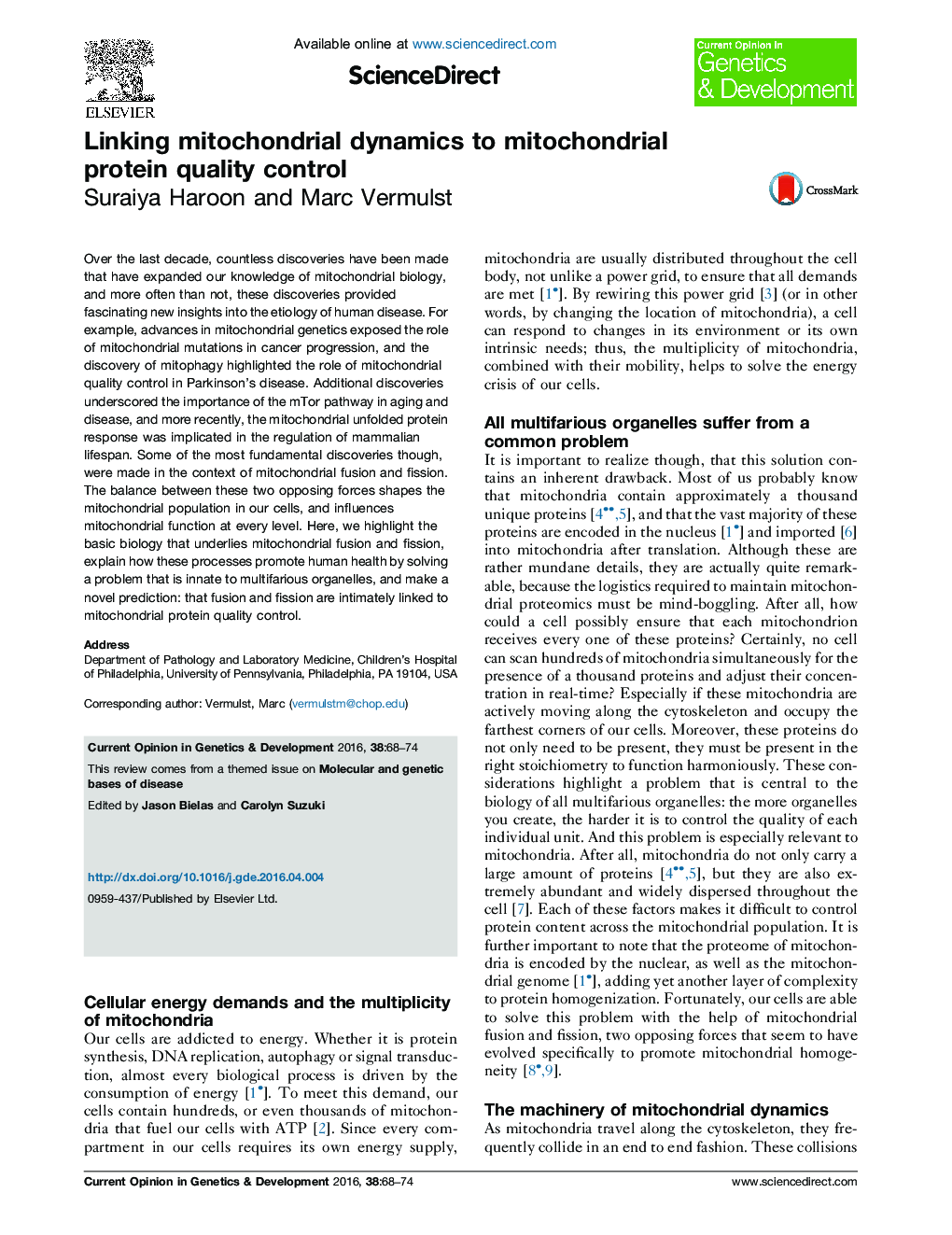| Article ID | Journal | Published Year | Pages | File Type |
|---|---|---|---|---|
| 5893191 | Current Opinion in Genetics & Development | 2016 | 7 Pages |
Abstract
Over the last decade, countless discoveries have been made that have expanded our knowledge of mitochondrial biology, and more often than not, these discoveries provided fascinating new insights into the etiology of human disease. For example, advances in mitochondrial genetics exposed the role of mitochondrial mutations in cancer progression, and the discovery of mitophagy highlighted the role of mitochondrial quality control in Parkinson's disease. Additional discoveries underscored the importance of the mTor pathway in aging and disease, and more recently, the mitochondrial unfolded protein response was implicated in the regulation of mammalian lifespan. Some of the most fundamental discoveries though, were made in the context of mitochondrial fusion and fission. The balance between these two opposing forces shapes the mitochondrial population in our cells, and influences mitochondrial function at every level. Here, we highlight the basic biology that underlies mitochondrial fusion and fission, explain how these processes promote human health by solving a problem that is innate to multifarious organelles, and make a novel prediction: that fusion and fission are intimately linked to mitochondrial protein quality control.
Related Topics
Life Sciences
Biochemistry, Genetics and Molecular Biology
Developmental Biology
Authors
Suraiya Haroon, Marc Vermulst,
